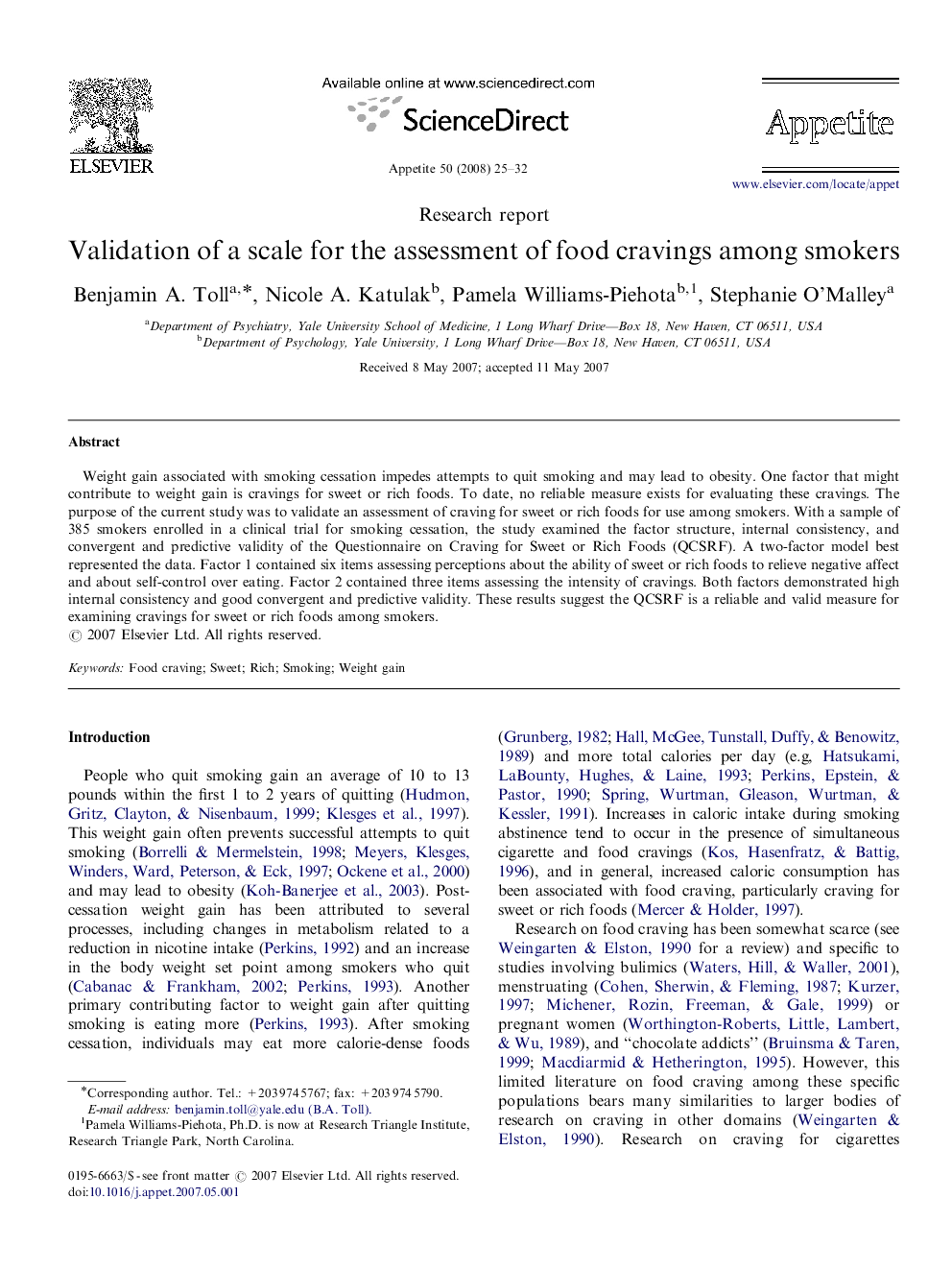| Article ID | Journal | Published Year | Pages | File Type |
|---|---|---|---|---|
| 941549 | Appetite | 2008 | 8 Pages |
Weight gain associated with smoking cessation impedes attempts to quit smoking and may lead to obesity. One factor that might contribute to weight gain is cravings for sweet or rich foods. To date, no reliable measure exists for evaluating these cravings. The purpose of the current study was to validate an assessment of craving for sweet or rich foods for use among smokers. With a sample of 385 smokers enrolled in a clinical trial for smoking cessation, the study examined the factor structure, internal consistency, and convergent and predictive validity of the Questionnaire on Craving for Sweet or Rich Foods (QCSRF). A two-factor model best represented the data. Factor 1 contained six items assessing perceptions about the ability of sweet or rich foods to relieve negative affect and about self-control over eating. Factor 2 contained three items assessing the intensity of cravings. Both factors demonstrated high internal consistency and good convergent and predictive validity. These results suggest the QCSRF is a reliable and valid measure for examining cravings for sweet or rich foods among smokers.
